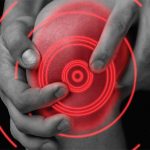Patients may experience changes in their pain pathways that trigger heightened, even long-lasting, pain hypersensitivity. In the recent MOST study of 3,026 adults with knee osteoarthritis or high risk of knee osteoarthritis, a lower pain threshold was detected that was not associated with mechanical damage of the joint and, in some cases, lasted after joint arthroplasty.
Scientists have not yet determined why this occurs, but research seems to indicate a deeper connection between injury or illness and changes in the nervous system, Dr. Woolf said. ”We need to begin to look at these systems as acting together rather than functioning separately,” he said. “We also need to recognize that chronic pain may be a manifestation of a disease state of the nervous system.”
Susan Berstein is a freelance medical journalist based in Atlanta.


